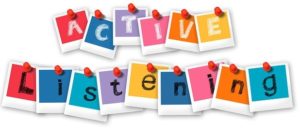 The holidays are a wonderful time and for some families, it may be the only time everyone is together. And if you can’t get together in person, you can consider getting together virtually with Zoom, Skype or Facetime. Having multiple generations together can make the holidays an ideal time to have some estate planning discussions.
The holidays are a wonderful time and for some families, it may be the only time everyone is together. And if you can’t get together in person, you can consider getting together virtually with Zoom, Skype or Facetime. Having multiple generations together can make the holidays an ideal time to have some estate planning discussions.
Starting the Conversation
Too often, family members hesitate to talk about estate planning and they never form a plan. There’s no one way to start this conversation, but planning your opening can help you get started. One way to bring it up is to refer to materials you have read recently. Or bring up another family you may know who is going through the estate planning process.
You could say:
- “Do you know so and so, their parents passed away recently and they have had so many problems because they didn’t have a plan. I think we should talk about some of those things so that doesn’t happen to our family.”
- Or, “I was reading an article about estate planning the other day and how important it is to talk about it with your family and create a plan. I think I’d like to talk with you all while you’re here for the holidays.”
If you choose to start these conversations, remember estate planning can be a sensitive topic for all generations involved.
Communication Tips
- Remember to be a good listener and listen for meanings and feelings behind words.
- Respect the views of others. Even if you can’t agree, you can still show sensitivity and respect for each other’s feelings.
- Use I statements instead of you statements to convey feelings. It’s important to express feelings, but try to do so in a way that does not place blame.
- If conflict arises try to discuss and clarify the problem and make a commitment to work toward a solution.
- Remember to focus on why you are having conversations about estate planning. Having a plan helps prevent conflict down the road, helps create a smoother transition to the next generation, and will help give you peace of mind.
Passing on Family Heirlooms
 One aspect of estate planning that can be overlooked is passing on personal family items. Grandparents can often be surprised by what has meaning for their children or grandchildren if they have never talked about it. The holidays can be a great time to have discussions with family members about what items are special to them, if there are family stories behind items, and how certain items can be distributed either before or after the death of a family member.
One aspect of estate planning that can be overlooked is passing on personal family items. Grandparents can often be surprised by what has meaning for their children or grandchildren if they have never talked about it. The holidays can be a great time to have discussions with family members about what items are special to them, if there are family stories behind items, and how certain items can be distributed either before or after the death of a family member.
Many times grandparents may choose to pass items on while they can still enjoy giving those items to the next generation. Another method is to create a list of items and use a personal property memorandum attached to your will. Some people use painter’s tape to label large items with names of family members as they don’t move those items often. There are many ways to deal with personal property and each way has advantages and disadvantages. What is most important is establishing what your goals are and getting the process started.
For more information on transferring heirlooms, the University of Minnesota has resources video on Who Gets Grandma’s Yellow Pie Plate to take you through this process. You can also see the resources they have available or purchase the workbook on their website.


Thank you for this article as it is very important to talk about this topic!
I can’t get the University of Minnesota url to work. States moved or deleted. Do you have a url that works?
Good information and always timely.
Wendy,
Check out this video on Grandma’s Yellow Pie Plate. https://youtu.be/z3NNoVRQpI8
You can also research the internet and find the workbook by Marlene S. Stum available for purchase.
Thank you!
Hi Wendy,
This link should work for their article on conversations – https://extension.umn.edu/transferring-non-titled-property/tips-estate-planning-and-talking-about-inheritance
I’m not sure if that is the one you were having trouble with. This is the link where you can get information on the workbook and other resources they offer: https://extension.umn.edu/transferring-property/transferring-non-titled-property
Please let us know if this isn’t what you were looking for!